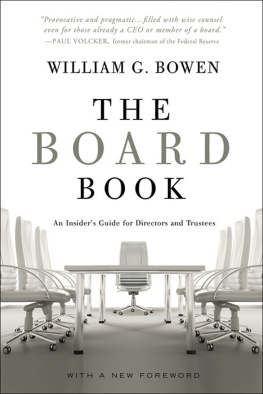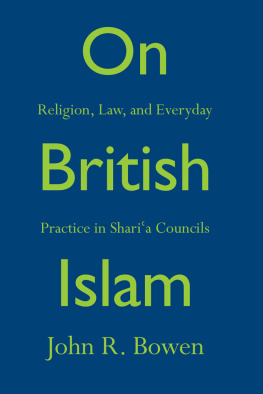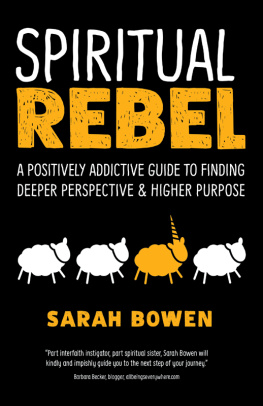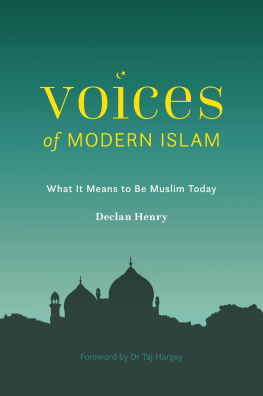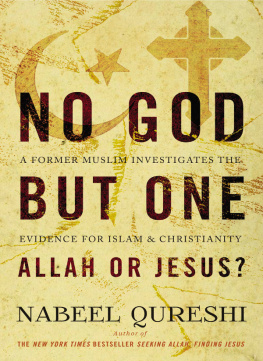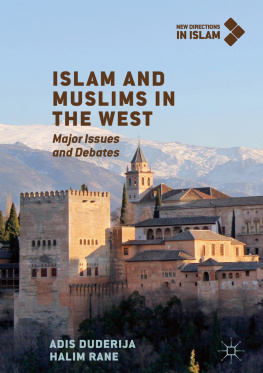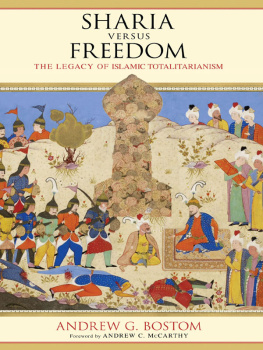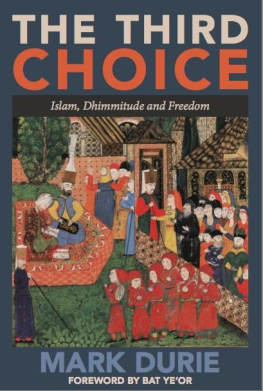BLAMING ISLAM
BLAMING ISLAM
John R. Bowen
A Boston Review Book
THE MIT PRESS Cambridge, Mass. London, England
2012 Massachusetts Institute of Technology
All rights reserved. No part of this book may be reproduced in any form by any electronic or mechanical means (including photocopying, recording, or information storage and retrieval) without permission in writing from the publisher.
MIT Press books may be purchased at special quantity discounts for business or sales promotional use. For information, please e-mail or write to Special Sales Department, The MIT Press, 55 Hayward Street, Cambridge, MA 02142.
Library of Congress Cataloging-in-Publication Data
Bowen, John Richard, 1951
Blaming Islam / John R. Bowen.
p. cm. (A Boston review book)
Includes bibliographical references and index.
ISBN 978-0-262-01758-9 (hardcover : alk. paper)
ISBN 978-0-262-30110-7 (retail e-book)
1. IslamUnited StatesPublic opinion. 2. MuslimsUnited States. 3. Islamic lawUnited States. 4. Islamic lawGreat Britain. 5. Islamophobia. 6. ConservatismUnited States. I. Title.
BP67.U6B69 2012
305.697091821dc23
2011049219
10 9 8 7 6 5 4 3 2 1
To Charles Caruson
Preface
For the last ten years, I have been working with Muslims and non-Muslims, scholars and ordinary people, politicians and public figures, mainly in Europe and North America. Sometimes I focus on Muslims efforts to reinterpret the Islamic tradition, sometimes on non-Muslims apprehensions about such a project. In France I wrote first on the fears underpinning efforts to ban Islamic scarves from schools, and then about Muslims social and intellectual projects to adapt to France. Now I find myself in the same back-and-forth in Britain and the United States. In each case, misunderstandings feed suspicion and hatred. My preoccupation with this dangerous causal chain lies behind the present slim volume. Hence the central thrust: to demonstrate that certain misapprehensions fueling fear of Islam are just that: misapprehensions.
None of this is to deny the existence of cruelty, terrorism, and patriarchy in the world, among Muslims as well as among Hindus, Christians, and atheists. But pointing these things out in the case of Islaman amplified industrythreatens to drown out those who wish to point to the ordinary, reasonable nature of the life projects of most Muslims and of their understandings of their faith. Let this modest work be one effort to clear away some dangerously scruffy brush so that more fine-grained portraits of Islam can survive.
Had it not been for the continued encouragement of Deborah Chasman and Joshua Cohen, editors of Boston Review, I would not have written the articles that gave rise to this volume, much less the book itself. We need many more ways to bridge academic research and public writing, and Deb and Josh are leading that struggle. Simon Waxmans heroic editing completes the picture.
My final acknowledgment reaches back to my high school years, where Charles Caruson taught me that argument needed to be put to the service of the social good, and that, for it to work, it needed to be good argument.
Introduction: Finding an Enemy
At any one moment in Western history, some people have been targeted for broad-based hatred: Jews, Catholics, Protestants, Africans, Slavs, Gypsies, homosexuals, and, unfortunately, so forth. Today the primary targets of hate are Muslims. Why there need be targets is beyond the scope of this book, although Freud had something to say on the subject, as did the Frankfurt theorists. Anthropologists have pointed to ways human societies work by opposition, often bipolar opposition, us versus them, on scales ranging from feuding tribes to warring nation-states.
When a particular narrative of us versus them circulates widely, it can be used to dehumanize huge segments of humanity. Pogroms in Russia and genocide in Europe were fuelled by the poisonous Protocols of the Elders of Zion, which later found a second life in parts of the Muslim world. Communism and anti-Communism, twinned for decades, wound much of the newly postcolonial world into a web of intrigue and oppression. But after the fall of the Soviet Union there was an opening for a new them, a new enemy. Islam fit the bill.
A few academics gave Islam versus the West a new guise and some respectability, expressed most famously in Samuel Huntingtons The Clash of Civilizations (1996), with its odd notion that the Chinese and the Muslims would make common ground against us. Well before 9/11, anti-Islamic sentiment also gained popularity in the United States through evangelical Protestant preaching. In parts of Europe it was inflamed by broad backlashes against the growing presence of Muslim immigrants. The attacks on 9/11 seemed to confirm the idea that Islam and the West were at war, as did the July 7, 2005 bombings in Britain and the Dutch filmmaker Theo van Goghs 2004 murder by a Moroccan immigrant in Amsterdam.
All along the way, it has at times been electorally expedient to blame Islam for a range of social ills. In most of Europe as in the United States, a new far-right populism has been gaining ground, and skilful politicians of the more moderate right have sought to reclaim some of those votes by joining in condemning Islam and the elites who supposedly coddled it. Attacks on Islam go hand in hand with attacks on multicultural politics in Europe and on liberal politicians in the United States. Populism is a broad church.
The drumbeat of anti-Islam propaganda can lead to sharp social divisions and violent actions. The most shocking recent example came on July 22, 2011, when Anders Behring Breivik opened fire on youth members of the Norwegian Labor Party, killing 69 teenagers, and bombed government buildings in Oslo, killing eight others. Breivik had written a long set of statements espousing hatred for all that he saw as destroying a properly Norwegian way of life. Among his most despised targets were Islam and the multicultural politics of the elite. For years he had drenched himself in the writings of far-right, anti-Islam activists from the United States and Europe, and he planned his killing spree as a way of saving Europe from Islam. Anti-Islam writings do not explain his actions, but it is difficult to imagine those actions in the absence of such writings.
More mundane but also disturbing are the local manifestations of widespread anti-Islam sentiment in the United States. In 2010 some residents of Murfreesboro, Tennessee protested plans by their Muslim neighbors to build a new mosque. Frustrated when their city council approved the project, they launched a lawsuit claiming that the new mosque would bring more Muslims to the area, paving the way for sharia law. They were convinced that this was already happening elsewhere in America: its creeping in, said Sally Wall, a real estate agent who backed the lawsuit. The suit failed, despite the efforts of the prosecutor to prove that Islam was not a religion because it advocated oppressing and torturing women. An unsuccessful Republican congressional candidate joined the protest, others urged local contractors to boycott the project, and someone torched the construction equipment.
Murfreesboro shows us both the problem and the solution. Ignorant claims (sharia is already here, Muslims whip their womenfolk) comforted those who searched for a way to justify their unease at seeing headscarves on the street. Those claims fueled hatred and violence. But others in the town staged counter-protests, upholding constitutional rights to religious freedom. Moreover, the judge in the lawsuit, also a local man, ruled that the claims about creeping sharia had no legal relevance and that Muslims had the same right to worship as did those of other faiths. The mosque could go ahead. (As this book goes to press, the mosques supporters are still raising money and looking for a contractor.)
Next page

